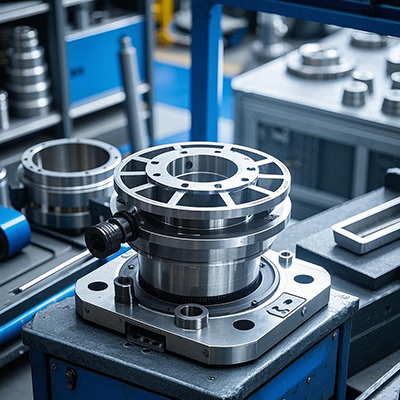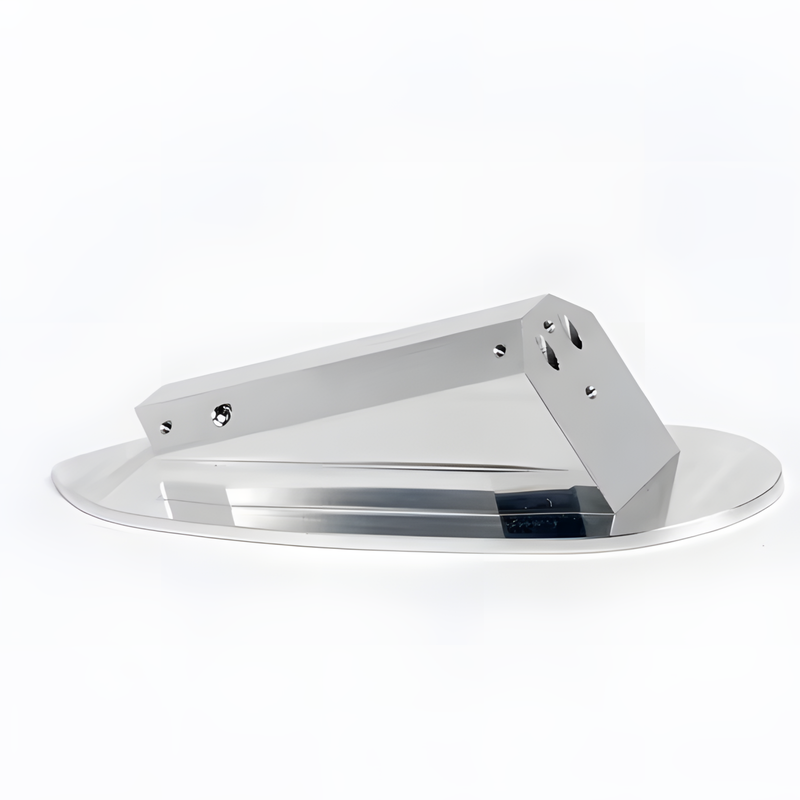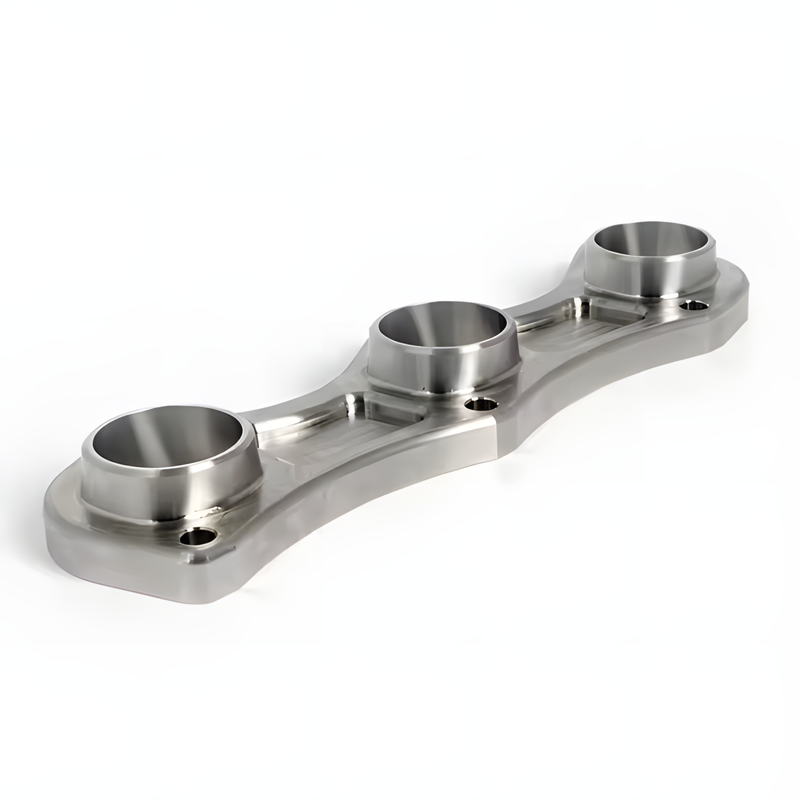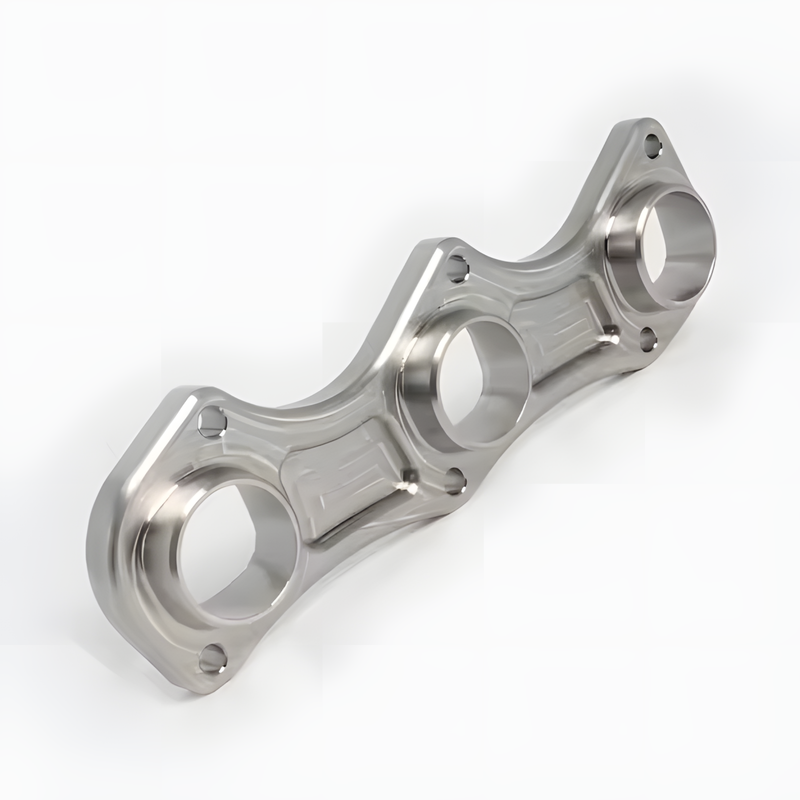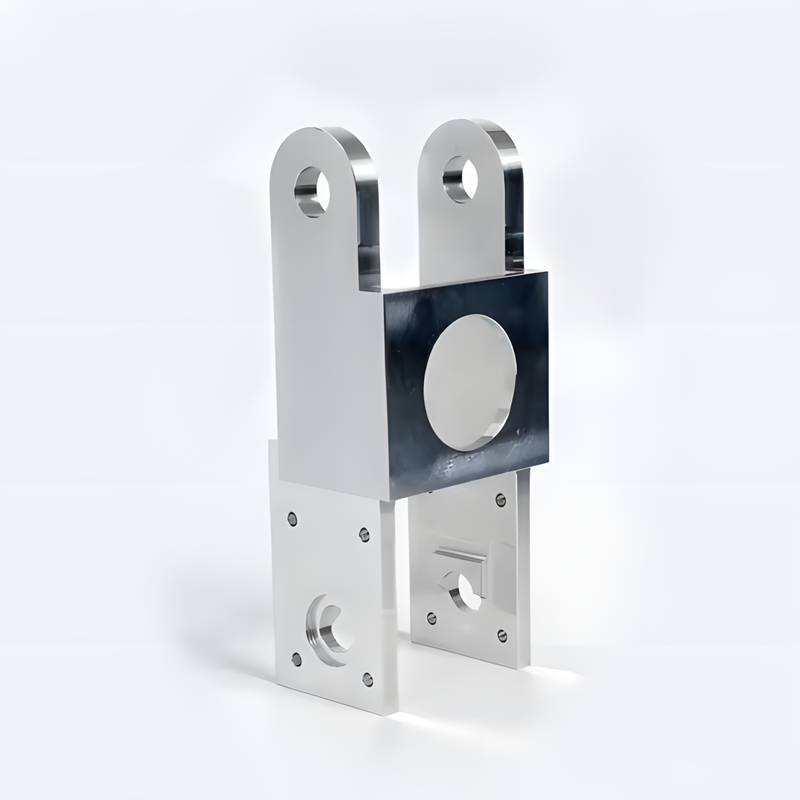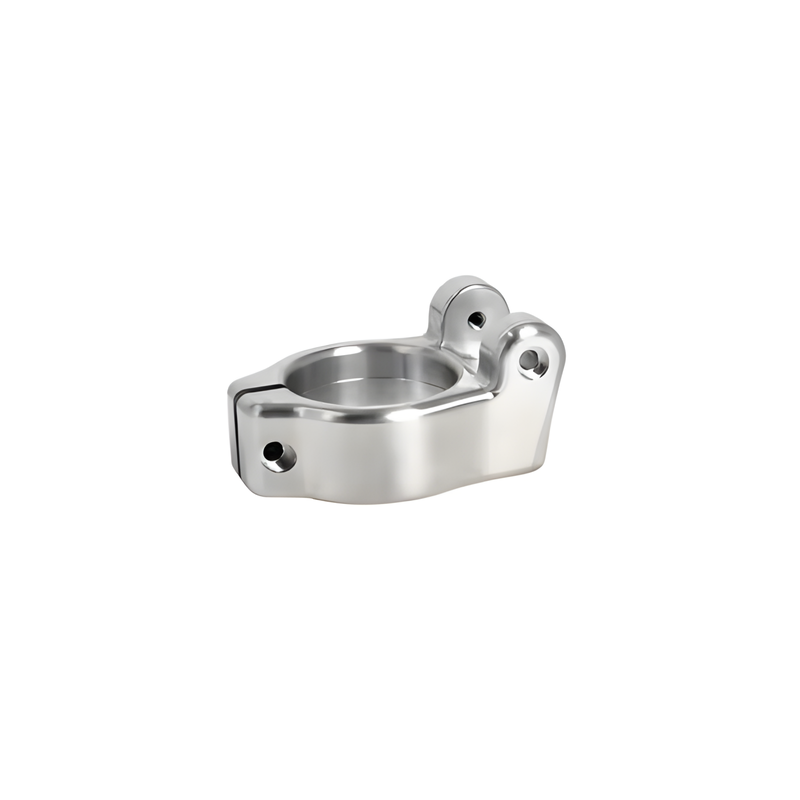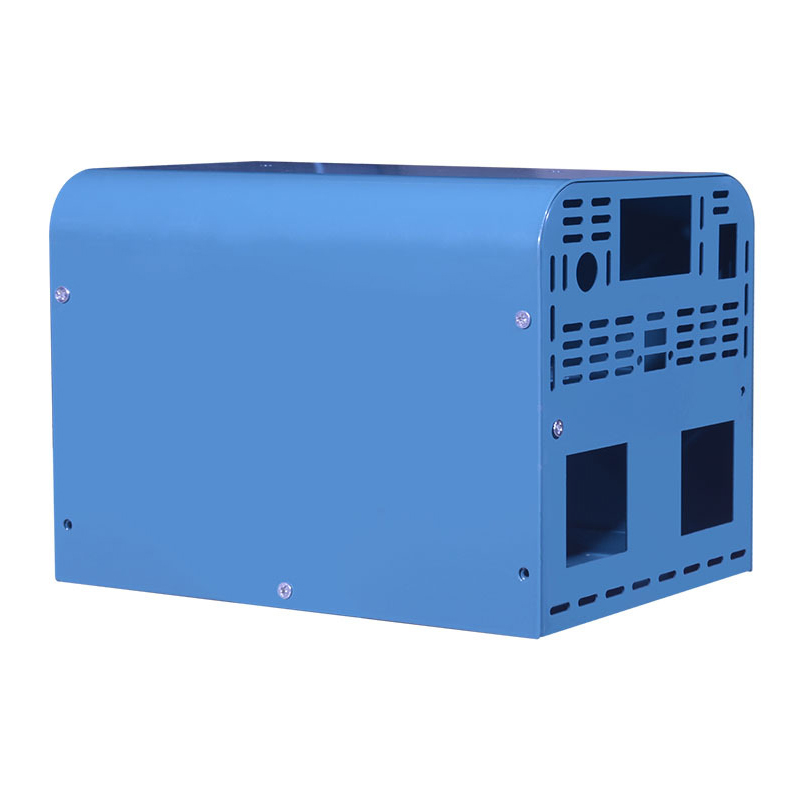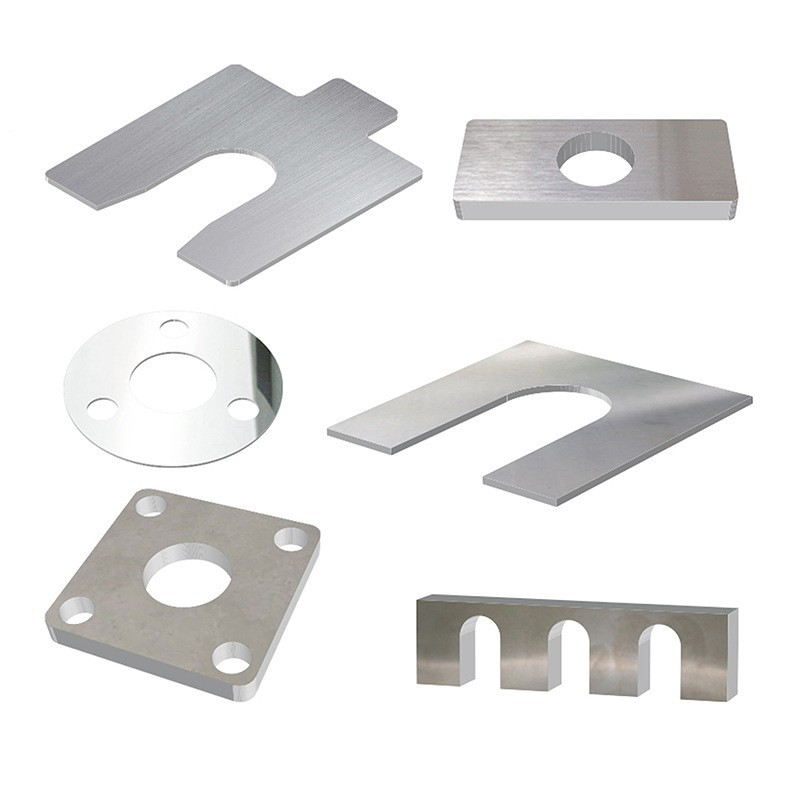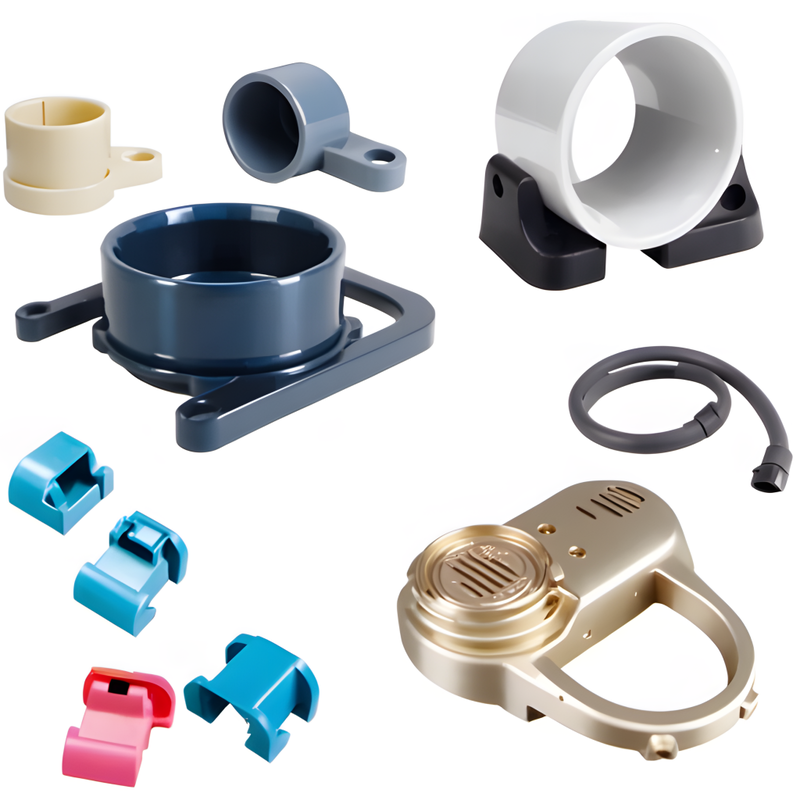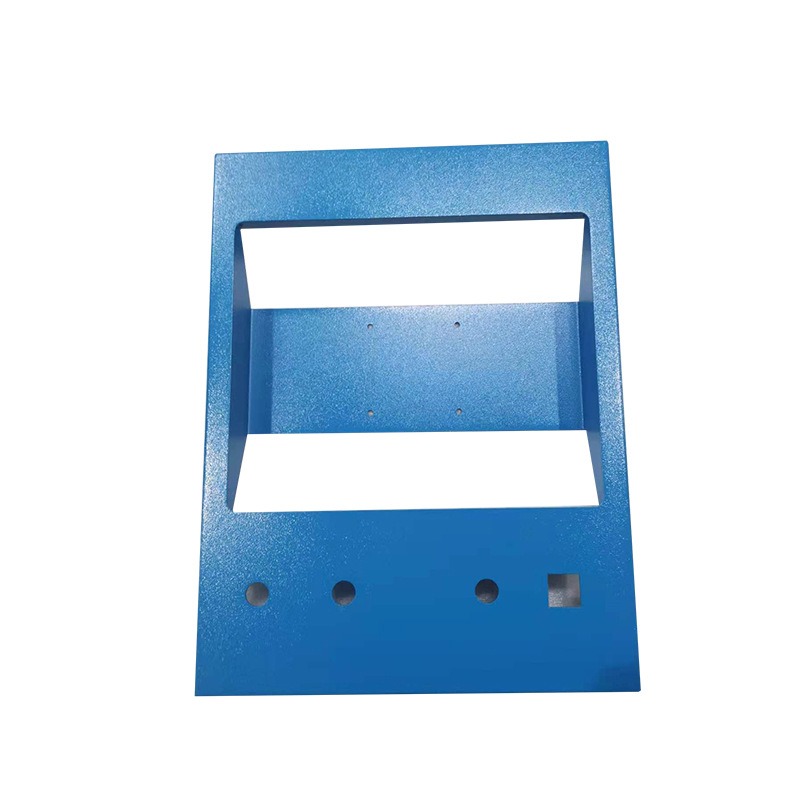Product Description
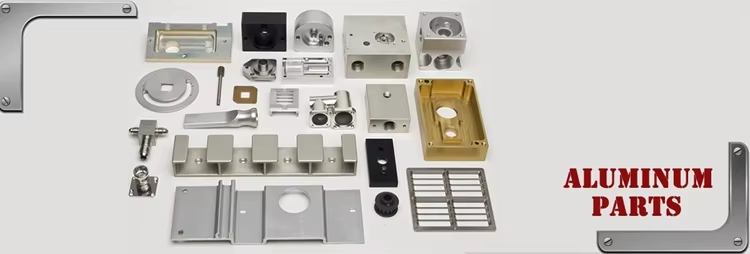
This precision CNC Turning-Milling Part is manufactured using advanced multi-axis CNC machining technology, combining both turning and milling operations in a single setup for superior accuracy and efficiency. Crafted from high-quality materials such as stainless steel, aluminum, brass, or engineering plastics, each component is custom-machined to meet exact specifications for industrial, automotive, aerospace, or medical applications.
Precision Tolerance | Up to ±0.01mm, ensuring a perfect fit and finish |
Material Options | Aluminum, Stainless Steel, Brass, Copper, Titanium, POM, and more |
Surface Finishes | Anodizing, polishing, powder coating, electroplating, sandblasting |
Process | Simultaneous CNC turning and milling for complex geometries |
Applications | Gears, shafts, housings, brackets, and custom mechanical parts |
Customization | Fully customizable dimensions, threading, and features based on your CAD drawings or samples |
Advantages
High dimensional accuracy and repeatability
Reduced lead times through integrated machining
Suitable for both low- and high-volume production
Consistent quality through rigorous inspection and quality control
Required Information from Customers Before Customization
1. Processing Drawings / 3D Models
Customers must submit detailed technical drawings or 3D model files.
Supported formats include:
o 3D: STEP, IGS, STL
o 2D: DWG, PDF (with complete dimensions and notes)
2. Quantity Requirements
Indicate the number of pieces required for production.
Please specify whether the order is for:
o Prototypes
o Small-batch production
o Mass production
3. Material and Accuracy Specifications
Clearly define:
o The material type and grade (e.g., 6061-T6 aluminum, SUS304 stainless steel)
o The required machining tolerance (e.g., ±0.01 mm, or ISO standard class)
4. Surface Treatment Requirements
Indicate if surface finishing is required, such as:
o Anodizing
o Polishing
o Zinc/Nickel Plating
o Powder coating, etc.
Also specify any color or texture preferences.
5. Special Process Instructions
Include any special machining requirements such as:
o Thread sizes and types (e.g., M6, UNC, NPT)
o Geometric tolerances (e.g., concentricity, flatness)
o Assembly fit requirements
o Any other functional or critical features that affect performance
Advantages and highlights of the factory
Our factory specializes in fully customized CNC machining services, offering precision turning and milling for both prototyping and mass production. We support a wide range of materials, including metals and engineering plastics such as aluminum, stainless steel, carbon steel, brass, copper, titanium, POM, and PEEK. Equipped with advanced CNC machines and automated systems, we ensure high-precision results with tolerances as tight as ±0.01 mm. Our quality control system complies with international standards, including ISO 9001, ensuring consistent accuracy and reliability in every part we produce.
We provide a complete one-stop solution, covering turning, milling, drilling, grinding, EDM, and various surface treatments such as anodizing, plating, and painting. OEM packaging services are also available. Our team of experienced engineers offers professional support throughout the process — from design review and material selection to production planning — enabling us to meet highly specific and technical requirements. We also offer fast turnaround times, with expedited production and delivery available within 3–7 working days, helping customers meet tight development schedules with confidence.
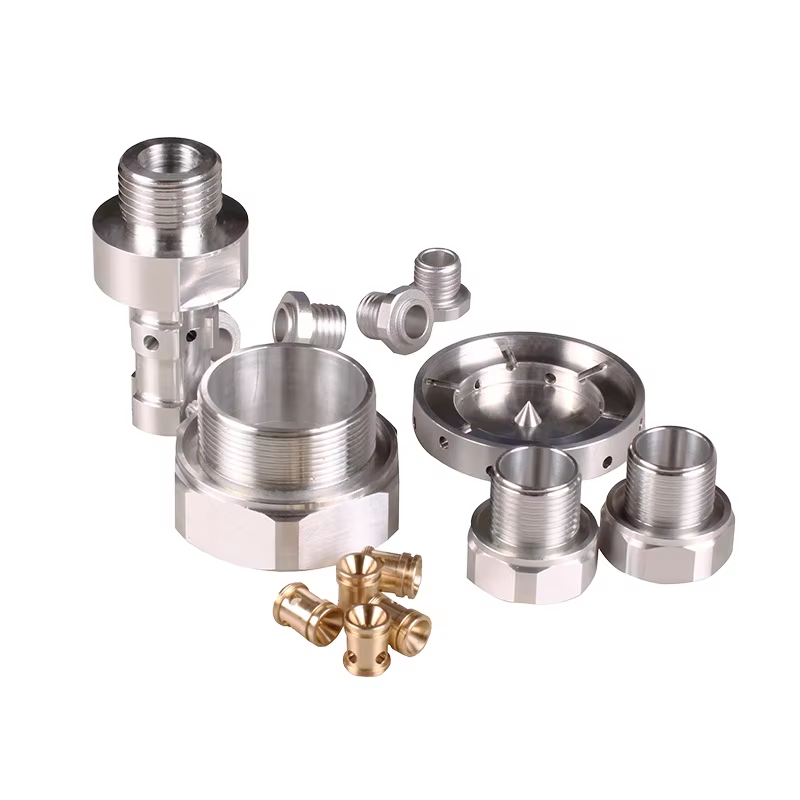
Product Dispaly

Description of main customization parameters
Category | Customizable Options | Customer Requirements |
Material | Aluminum, Stainless Steel, Carbon Steel, Brass, Copper, Titanium, POM, PEEK, etc. | Specify material type and grade (e.g., 6061-T6, SUS304) |
Dimensions | Length, width, height, diameter, hole sizes, thread sizes, etc. | Must be clearly shown in the drawing or CAD file |
Tolerance | Standard ±0.1 mm, or custom per ISO 2768, ISO 286, etc. | Indicate precision requirements in the drawing |
Processing Methods | Turning, Milling, Drilling, Grinding, EDM, Laser Cutting, Broaching, etc. | Specify required processes or leave it to the supplier |
Surface Finishing | Anodizing, Nickel Plating, Zinc Plating, Sandblasting, Polishing, Painting, etc. | Specify desired finish and color |
Quantity | From 1 piece (prototype) to large-volume production | Minimum order quantity typically starts from 1 unit |
Design File | Supported formats: PDF, DWG, STEP, IGES, STL, etc. | Provide clear and complete 2D/3D files |
Logo/Marking | Laser engraving, CNC engraving, Color printing, etc. | Provide logo file and marking location |
Packaging | Individual packaging, protective foam, OEM boxes, custom labeling | Specify any special packaging or labeling needs |
Product parameters
Processing Technology | Advantages | Disadvantages | Typical Applications |
CNC Milling | High precision, suitable for multi-axis work, supports various materials | Higher cost, longer setup time | Machine parts, enclosures, complex assemblies |
CNC Turning | Fast and cost-effective for cylindrical parts | Limited to round/symmetric shapes | Shafts, bushings, sleeves, spindles |
EDM (Wire/Sinker) | Extremely precise, ideal for hard and intricate materials | Only works with conductive materials, slow, high cost | Molds, fine components, tight corners, thin slots |
Laser Cutting | Fast, sharp, accurate for thin to medium sheet metals | Not suitable for thick or heat-sensitive materials | Signage, metal panels, frames, logo cutting |
Sheet Metal Stamping | Very low unit cost for high volumes, high speed | High initial die cost, limited flexibility | Automotive parts, casings, appliance components |
3D Printing (Metal/Plastic) | No tooling needed, fast prototyping, easy iteration | Lower strength, rougher surface finish | Prototypes, models, engineering test parts |
Manual Machining | Good for quick jobs, flexible for small tasks | Lower precision and slower than automated systems | Repairs, one-off samples, small-volume jobs |
Custom Process

Contact

Negotiation
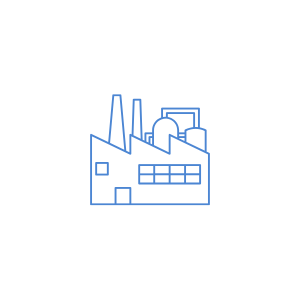
Mass Product

Transportation
Quality Control
Ensuring the dimensional accuracy, surface quality, and performance reliability of CNC-machined components is critical. A robust quality control (QC) system is implemented throughout the manufacturing process—from raw material inspection to final product validation.
Stage | Quality Control Measures |
Incoming Material Inspection | Verification of material certificates (e.g., Mill Test Report), chemical composition analysis, hardness testing. |
In-Process Inspection | First-article inspection (FAI), real-time monitoring during machining, use of precision measuring tools like micrometers and calipers. |
Dimensional Inspection | Full part measurement using CMM (Coordinate Measuring Machine), height gauges, dial indicators, and go/no-go gauges to ensure tolerances are met. |
Surface Finish Check | Visual and tactile inspection, Ra surface roughness testing using profilometers (e.g., Mitutoyo SJ-210). |
Thread Inspection | Use of thread gauges, plug gauges, and ring gauges for internal/external threads to verify pitch, depth, and fit. |
Functional Testing | Assembly fit tests, pressure/leak tests (for sealed components), torque testing where applicable. |
Final Inspection | 100% final inspection or sampling based on AQL standards (Acceptable Quality Limit), with documentation for traceability. |
Packaging QC | Protective packaging with labeling and handling checks to prevent damage during transport. |

Company Information
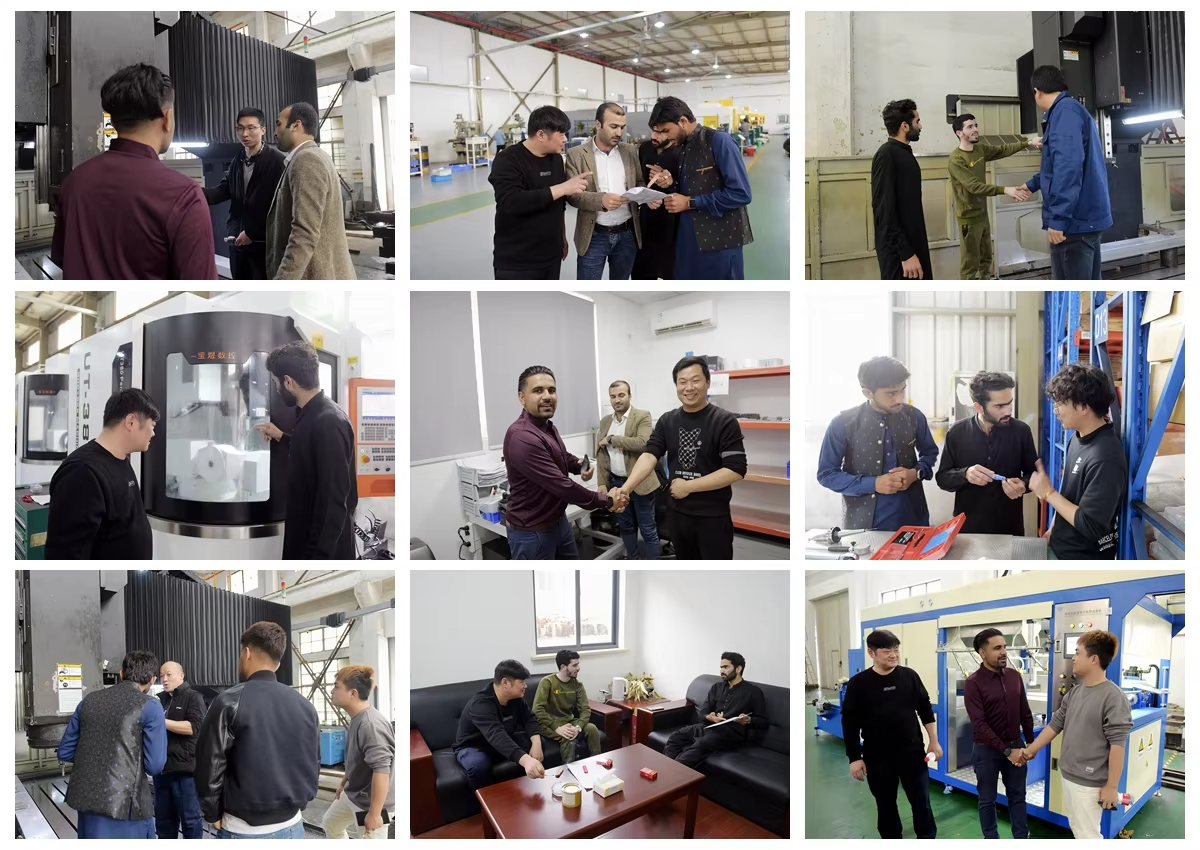

SHIPMENT ➽ PACKAGING ➽ TRUCK LOADING ➽ GOODS RECEIPT








